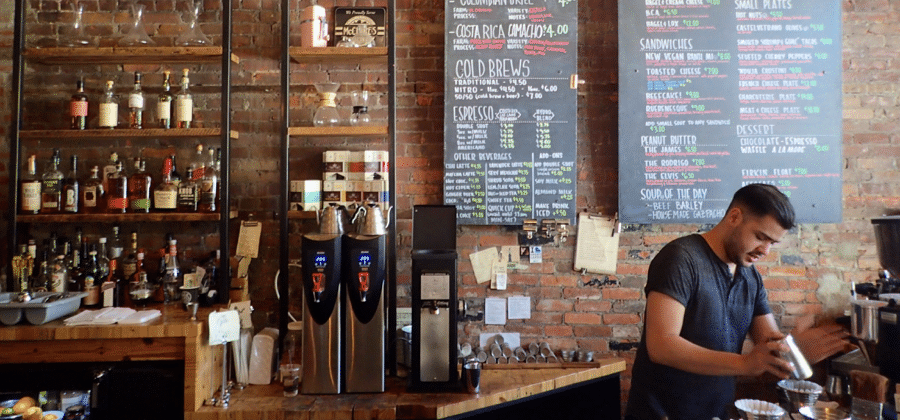
Vibrant, thriving communities need locally owned businesses. Local businesses can create a vigorous local economy, provide more jobs and reduce poverty. In the US private sector, small businesses produce two out of three jobs and generate approximately fifty percent of the GDP. And locally owned businesses also give rise to more civic engagement, higher voter participation and more volunteerism.
Everybody wants to live in a lively, prosperous neighborhood, but that’s not where most investments are going. The majority of Americans still invest in stocks and bonds, benefitting large corporations outside their communities. Banks typically only approve twenty percent of small business loans and venture capital funding only goes to a lucky one percent.
Small business needs those investment dollars.
Michael Schuman, economist, attorney, author and entrepreneur, is an avid advocate for local investing. He believes that start-ups and small main street businesses make a robust economy. In his book, Put Your Money Where Your Life Is, Michael outlines strategies for investing locally.
- Invest in you. There’s nothing more local than owning your own home. Once you pay off your mortgage you can invest in energy efficient improvements to reduce your household bills. You can pay off credit cards and student loans or lend money to family or friends at a lower-than-market interest rate.
- Invest in other people. There are many ways to invest in local small business and real estate. There might be a larger local project raising funds from individual investors to improve existing businesses or develop new ones. It’s also possible to invest in local government projects through a municipal bond offering.
- Save locally. Open an account and deposit your money in a locally controlled and operated financial institution. These community focused financial institutions have local decision-makers and serve the local community well.
- More options. Join a local investment club or start one. Slow Money, which catalyzes local food investing, has local chapters or investment clubs too. Or invest through community development corporations or a micro-credit fund.
The more you engage with your community, the more you will learn about local investment opportunities.
Listen in to my conversation with Michael to learn more.
Image by John D. Norton
